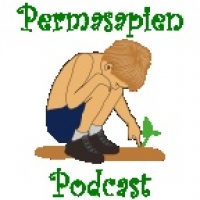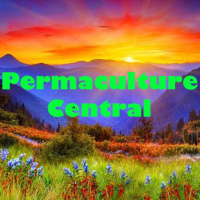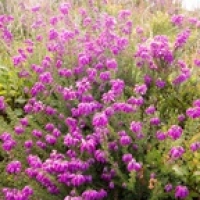Synopsis
with Scott Mann
Episodes
-
Holacracy and Self-Management - Mark Simpson
13/03/2021 Duration: 01h08minDonate to The Permaculture Podcast Online: via PayPal Venmo: @permaculturepodcast Browse the Archives. In today’s episode, co-host David Bilbrey continues his exploration of business and permaculture as he sits down to hear from Mark Simpson about how Mark applied the ideas of Holacracy and Self Management to a hierarchical business. This resulted in a flattening of that vertical organization into a vastly more horizontal one that creates empowerment and opportunity for employees to influence their work and direction.
-
Sabbatical
15/01/2021 Duration: 04minVisit Our Sponsor: Foraged.Market Donate to the Podcast via PayPal -or- Venmo @permaculturepodcast Join Our Community of Patrons on Patreon Want to listen to more conversations about Permaculture? Browse the extensive archives of the show. As you read these notes or listen to the accompanying podcast, I’m on a sabbatical. With all these years of producing long interviews, I need to take some time to experiment with new ideas, while reading, writing, and exploring what working with permaculture means. What do our practices look like in a world substantially changed since these ideas were first shared more than 40 years ago. How does the Zone model of permaculture shift when we don’t have access to land, particularly with more than half of the world living in cities and urban environments? When those spaces become their own unique ecosystems, some that we can walk through and others that demand motorized transportation. Some with green spaces and others the epitome of the concrete jungle.
-
Sustainable Suburbs - Serenbe | Steve Nygren
13/12/2020 Duration: 37minVisit Our Sponsor: Foraged.Market Donate to the Podcast via PayPal -or- Venmo @permaculturepodcast Join Our Community of Patrons on Patreon Want to listen to more conversations about Permaculture? Browse the extensive archives of the show. The episode with Jeff Speck left me curious about what the details Jeff mentioned look like in practice. I followed up that conversation by sitting down with my guest for this episode, Steve Nygren, founder of Serenbe.
-
Embracing Hope | Bonita Ford
21/11/2020 Duration: 44minVisit Our Sponsor: Foraged.Market Donate to the Podcast via PayPal -or- Venmo @permaculturepodcast Join Our Community of Patrons on Patreon Want to listen to more conversations about Permaculture? Browse the extensive archives of the show. We live in a world that seems ever more chaotic and outside of our control. From a global pandemic that is unlikely to be the only one we experience in our lifetimes to devastating natural disasters exacerbated by climate change that leads to weather weirding and chaos beyond our ability to properly map and mitigate. In the face of all of this, how do we avoid burnout and continue to practice permaculture and develop meaningful designs that fulfill the three ethics while improving the wellbeing of the natural world, our clients, and ourselves? Visit Our Sponsor: Food Forest Card Game To discuss how to manifest motivational longing in our lives is my guest, Bonita Ford, author of Embers of Hope, a meditative journal meets memoir. Bonita guides us through her feeli
-
Jonathan Martinetto - An Introduction to Aquaponics
14/11/2020 Duration: 50minVisit Our Sponsor: Foraged.Market Donate to the Podcast via PayPal -or- Venmo @permaculturepodcast Join Our Community of Patrons on Patreon Want to listen to more conversations about Permaculture? Browse the extensive archives of the show. Seafood represents the largest traded food commodity market in the world. 3 billion people depend on fish and other farmed or wild-caught foods as a source of protein, according to figures from the World Wildlife Fund. Regretfully, the majority of fish stocks are not sustainable, as they are overfished or fully exploited. Seeking sustainable and regenerative approaches to fishing and fishery management help to secure the future of food for large portions of the world. Visit Our Sponsor: Building a Better World in Your Backyard Become a Patreon of The Permaculture Podcast As permaculture practitioners, is there something we can do in our designs and processes on small spaces to decrease our reliance on commercial food sources while using the byproducts of raisin
-
Matt Fidler - Designing for Disasters: Understanding and Mitigating Wildfires
07/11/2020 Duration: 56minVisit Our Sponsor: Foraged.Market Donate to the Podcast via PayPal -or- Venmo @permaculturepodcast Join Our Community of Patrons on Patreon Want to listen to more conversations about Permaculture? Browse the extensive archives of the show. During our lifetime we will encounter a variety of short to long-term disasters. The form the problem takes will vary depending on where we live, and how widespread the incident is that occurs. In late 2019 and throughout 2020, we’ve all been finding ways to respond to the COVID-19 pandemic. More regular and localized are man-made and natural disasters. Though not a comprehensive list, arising from society, those problems may be a hazardous material spill, power disruption, nuclear radiation leak, chemical or biological threat, communication blackout, and civil unrest. While the natural cycles of the world, compounded by human decisions and climate change, include earthquakes, hurricanes, typhoons, tornadoes, extreme heat, winter storms, wildfires, and flooding.
-
Matt Arthur - Reducing Food Waste: An Introduction to Bokashi
31/10/2020 Duration: 43minVisit Our Sponsor: Foraged.Market Donate to the Podcast via PayPal -or- Venmo @permaculturepodcast Join Our Community of Patrons on Patreon Want to listen to more conversations about Permaculture? Browse the extensive archives of the show. In the United States alone, more than 38 million tons of food is thrown away every year. 94% of that winds up in landfills, to rot and release methane, and lock all the nutrients from being returned to Earth for future fertilization. Visit our Sponsor: Building a Better World in Your Backyard As permaculture practitioners, the principles set forth by David Holmgren and beautifully detailed at permacultureprinciples.com, implore us to Use and Value Renewable Resources, to Catch and Store Energy, and Produce No Waste. These principles lead us to a strategy to refuse, reduce, reuse, repair, and recycle. In the context of the food system, we refuse to create additional waste by not buying food we won’t eat or use. We reduce our waste by saving and eating leftovers f
-
Racism and Land Access in America
24/10/2020 Duration: 04minVisit Our Sponsor: Foraged.Market Donate to the Podcast via PayPal -or- Venmo @permaculturepodcast Join Our Community of Patrons on Patreon Want to listen to more conversations about Permaculture? Browse the extensive archives of the show. Every month I post an Ask Me Anything Thread over on the Patreon for the podcast at Patreon.com/permaculturepodcast. Most of the time these threads are about design and plants, like the best time to transplant Elderberry. Sometimes we get away from permaculture and a question will come up like, What is my favorite Halloween Candy? To which the answer is anything with chocolate and peanuts, whether that’s the whole legume or peanut-butter. In the AMA for October 2020, however, Joey asked something different. Their question was, “Do you have an opinion on the recent debate between Joel Salatin and Chris Newman of Sylvanaqua farms concerning racism and land access?” Their question was, “Do you have an opinion on the recent debate between Joel Salatin and Chris Ne
-
Geoff Christou - We are Time Scouts, Designing for the Future
17/10/2020 Duration: 33minDonate to The Permaculture Podcast Online: via PayPal Venmo: @permaculturepodcast The title for this episode is based on a quote from Bill Mollison that my guest, Geoff Christou, paraphrases in the middle of our conversation today about how Utopian literature, the need to imagine the future, and sharing that vision with others through stories, can help our work as permaculture practitioners. That we can create more abundant designs by first sitting down and thinking about what we want in the place where we live, in our relationships with Earth and other life, and in the wider world. By knowing those stories deeply—to inhabit them—we can teach others to yearn for a vast, bountiful, and regenerative life. Find out more about Geoff's work and pick up an e-book copy of his novel at permacultureutopia.com. As I said in the beginning, the title for this episode is based on a quote from Bill Mollison. The text of that is: When we design, we are always building for fut
-
Passion in Practice: Resilience, Transformation, and Radical Self-Care
10/10/2020 Duration: 48minDonate to The Permaculture Podcast Online: via PayPal Venmo: @permaculturepodcast This episode marks 10 years of The Permaculture Podcast with Scott Mann, the longest-running English language podcast dedicated to the breadth and depth of permaculture. To celebrate a decade of the show, the following interview is a personal one for me. In 2015, I interviewed Taj Scicluna, The Perma Pixie, and the two conversations we released were ones that transformed my personal perspective of permaculture. As Dave Jacke, Larry Santoyo, and Mark Lakeman moved my thoughts from permaculture as a land-based practice to a larger, holistic system applicable to most human needs for design, Taj’s thoughts on a fourth ethic, of transition, gave me an understanding of the precarious place we find ourselves in as we create the designs that lead to a more bountiful world for all life on Earth. Given all the issues we face from landscape degradation to economic programs that require our partic
-
Gayogohono Revitalization: Native Plants, Language, and People
28/09/2020 Duration: 48minDonate to The Permaculture Podcast Online: via PayPal Venmo: @permaculturepodcast A common refrain in permaculture is about our need to develop a sense of place. To have an understanding of where we currently live, where we come from, and to find a connection to the land under our feet or where we call home. For those of us within the anglosphere, we have a Nation that encompasses our state or province, and from there the city or town that defines our address. Those determine our polities within our biosphere. Many of us are fortunate enough to decide where we will live and how we will relate to these places by choosing earth, human, or bio-centric lenses to view the world. As a result of colonial disruption, however—whether the conquest of Latin and South America by the Portuguese and Spanish, by the American drive West, by Dutch colonization throughout sub-Saharan Africa, or by British expansion into India and Australia—many native, First Nation, and Aboriginal
-
Shawn Klassen-Koop - Building a Better World in Your Backyard
25/09/2020 Duration: 41minDonate to The Permaculture Podcast Online: via PayPal Venmo: @permaculturepodcast Permaculture practices begin in the landscape, with the training of a permaculture design course focusing on how to design in a way that restores soil, grows food and creates spaces for human needs, and cares for Earth, in ever-expanding zones. During our time in that class, we may spend some of the conversations on alternative economics and governance if the course uses Bill Mollison’s Designers’ Manual for the curriculum and discusses the material found in Chapter 14. Outside the PDC, many authors and practitioners have added to how to have an impact in our day to day lives as we apply design and systems thinking to where we live, work, and play. As more and more of us, myself included, live in cities with little or no access to land or control over our living space—while others dream of returning to the countryside—we each have so many ways to practice permaculture. That’s where bo
-
Nigel Palmer - DIY Garden Amendments
12/09/2020 Duration: 40minDonate to The Permaculture Podcast Online: via PayPal Venmo: @permaculturepodcast My guest today is Nigel Palmer, author of The Regenerative Grower’s Guide to Garden Amendments. In our conversation, which begins with his biography, he shares his inspiration from the work of John Kempf and Dan Kittredge, along with the JADAM Korean farming method, to create garden amendments at home from hyper-local sources: eggshells and bones from his kitchen, scraps, and remnants from the garden, and leaf mold from the forest floor. Using ferments, tinctures, and extracts, he creates the foliar sprays, fertilizers, and soil drenches to grow disease and pest-resistant plants, and nutrient-dense food, without the need for commercial chemical fertilizers, pesticides, or fungicides. Rich with examples from his own garden, Nigel’s approach favors biology over technology to reduce the cost of gardening, improve his local soil, and the quality of his fruits and vegetables. You can find
-
Allen Clements - An Introduction to Biodynamic Agriculture
05/09/2020 Duration: 45minDonate to The Permaculture Podcast Online: via PayPal Venmo: @permaculturepodcast My guest today is Allen Clements, a permaculture practitioner who, when we recorded this interview in January, 2020, was completing his certification in Biodynamic Agriculture at the Pfeiffer Center in Spring Valley, New York. I’ve been intrigued by biodynamic agriculture as a farming practice since first hearing about the growth of biodynamic wineries in Sonoma Valley, California. How did Rudolf Steiner’s philosophy impact the way we managed the land? How does Biodynamic Agriculture differ from permaculture or organic ag? And, what was the deal with the preparations, like stuffing a cow horn full of manure and burying it in a field? Thankfully, I knew of Allen Clements through our local permaculture community and saw that he’d posted some info about biodynamic agriculture to his Instagram feed. Reading some of his blog entries, he was just getting started with all of this, so seemed like
-
Allan Savory - Managing Complexity and Holistic Management
29/08/2020 Duration: 01h18minDonate to The Permaculture Podcast Online: via PayPal Venmo: @permaculturepodcast Today’s interview was originally recorded by the Australian podcaster Dan Palmer for an episode of his excellent, Making Permaculture Stronger. I’ve known Dan since before he started his show and as I recall it was at 1 or 2 AM on the East Coast of the United States when we connected over Skype several years ago to talk about his plans for starting a new podcast with a deep focus on the design process as it applies to permaculture, and what we can learn from experts within and without the community. As my focus over the years has been on the breadth of what it means to practice permaculture, and not the specifics of design, I shared with Dan my thoughts on how to develop an interview style and choosing how much to prepare for those conversations ahead of time. How to find your narrative voice and make decisions early on that establish your on-air presentation. After a rather enjoyable chat t
-
John Kempf - Improving Broadscale Agriculture
08/08/2020 Duration: 43minDonate to The Permaculture Podcast Online: via PayPal Venmo: @permaculturepodcast My guest today is John Kempf, the author of the recently released Quality Agriculture. A farmer, teacher, and entrepreneur from Northeast, Ohio, John has spent more than 15 years developing a nutrition and farm management program that quickly restores soil health and maximizes plant resistance to disease and insects, while reducing costs and increasing profits for farmers who adopt these methods. Already applying these processes to millions of acres of farmland, his current mission is for these regenerative models to become adopted globally by 2040. Along the way, John shares the history of how he came to and developed these methods, as well as how existing food policies and intellectual property systems hamper farmers' ability to steward the land and increase the health and resilience of our communities. By holistically meeting the needs of farmers and focusing on the results, rather
-
Rony Lec - Mesoamerican Permaculture Institute
11/07/2020 Duration: 47minDonate to The Permaculture Podcast Online: via PayPal Venmo: @permaculturepodcast My guest today is Rony Lec of the Mesoamerican Permaculture Institute (Instituto Mesoamericano de Permacultura – IMAP) in Guatemala. I first became aware of Rony years ago through my friends at the Finger Lakes Permaculture Institute, but what I knew up until he and I sat down barely revealed the depth and breadth of his exploration and implementation permaculture. He leverages decades of experience applying permaculture to indigenous agricultural methods, and combines work, outreach, and activism into a cohesive approach to teaching and design. The conversation which follows progresses from his early days of discovering permaculture through Ali Sharif and studying with Geoff Lawton, to his current work building networks and native food products. He also shares his concerns about land access, food sovereignty, and political will in Mesoamerica. Find out more about Rony and his work at i
-
Delvin Solkinson - Empowering Permaculture
04/07/2020 Duration: 53minDonate to The Permaculture Podcast Online: via PayPal Venmo: @permaculturepodcast Over the last two decades, my guest Delvin Solkinson studied permaculture education all over the world by taking numerous permaculture design courses and teacher trainings, as well as completing multiple diplomas, with various teachers. Some of his mentors include Bill Mollison, April Sampson-Kelly, and Rosemary Morrow. From those years of experience, he works to make this knowledge more accessible for students, easier to teach for instructors, and empowering for everyone, by sharing his notes in an open-source approach to permaculture. Find out more about Delvin and his work, including his Permaculture Design Notes Book and the Permaculture Design Deck, at visionarypermaculture.com. Become a Patreon patreon of The Permaculture Podcast Buy the show a cup of coffee Follow the show on Instagram and Twitter. I’m a long-standing advocate of open-sourced ideas and technology, using them
-
Erin Axelrod - The Next Economy
27/06/2020 Duration: 48minDonate to The Permaculture Podcast Online: via PayPal Venmo: @permaculturepodcast My guest today is Erin Axelrod, partner and worker/owner at LIFT Economy. She joins me to discuss how LIFT Economy is working to repatriate land, resolve housing issues, and create socially responsible businesses by investing in and providing support to women, indigenous, and people of color lead organizations. Using her years of experience as a framework, Erin provides multiple specific examples of what this work looks like in practice, what we can do to steer our economy towards regenerative businesses, and to heal our relationship with money. Find more about Erin and her work at LIFTeconomy.com 21 Choice Perennial Vegetables for 4-Season Climates Schedule with Scott UTOPIA: a permaculture vision This conversation with Erin touches on something I’ve been working on and speaking to other folks in the community, including Karryn Olsen and Dan Palmer, about over the last few m
-
Kai Sawyer - Peace, Permaculture, and The Gift
20/06/2020 Duration: 38minDonate to The Permaculture Podcast Online: via PayPal Venmo: @permaculturepodcast Image: Kai Sawyer at the Peace and Permaculture Dojo. (Source:YouTube: Peace and Permaculture Dojo Tour) “The more generous we are, the more relaxed we’ll be, the more wealthy we’ll feel, and the more gifts these will cycle.” – Kai Sawyer As we embody our values and live ever differently, how do we change the communities we are a part of as we become ever more apart from them? This is one of many thoughts I have as we enter this conversation with Kai Sawyer, as we look at his life as a practitioner embracing peace, permaculture, and the gift economy to bring about social and cultural change in Japan. Find out more about Kai Sawyer and his work at: Tokyo Urban Permaculture Living Permaculture Something Kai wanted me to mention, that didn’t make it into our conversation is the ongoing impact and questions as a result of the Fukushima





























